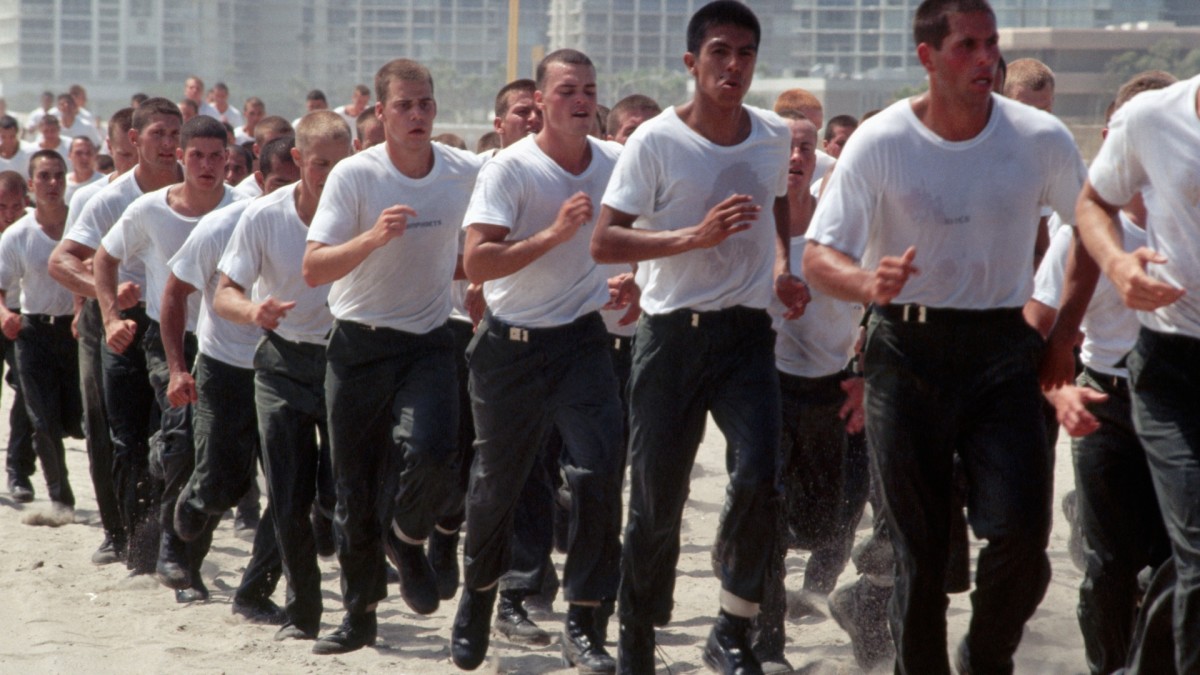The Navy SEALs' Secret to Enhancing Mental Toughness in Everyday Life
You don’t have to be a SEAL to benefit from this strategy.

Navy SEALs are trained to be some of the strongest and most resilient people in the world. Their training pushes them to extremes—often in conditions most of us can barely imagine. So, how do they handle the pressure? While it’s easy to chalk it up to sheer grit or genetics (that's definitely part of it), the truth is more strategic. Techniques like stress inoculation help them gradually build resilience by exposing them to pressures over time.
This widely used method can help them build tolerance to stressors like combat, intense workouts, sleep deprivation, and other extreme physical challenges. To help us learn more about how these brave men and women earn their mental toughness, we tapped experts Dr. Christina Ni, M.D., Psychiatrist and TMS Medical Director at Mindpath Health, and Brent Metcalf, Licensed Clinical Social Worker and owner of Tri-Star Counseling.
What Is Stress Inoculation?
"Stress inoculation is a highly effective method to help individuals increase their resilience by gradually exposing them to stress in controlled settings, so they can develop coping strategies and perform effectively under pressure," Ni says. "[It] employs similar techniques to exposure therapy, which is designed to introduce stressors in a safe space to help patients manage their reaction to specific triggers in healthier, more effective ways."
How It Works
Below, Ni breaks down how stress inoculation is implemented in SEAL training:
1. Gradual Exposure to Stress
SEAL candidates are gradually exposed to intense stressors, like grueling physical training, extreme temperatures, sleep deprivation, challenging terrain, water drills, and combat simulations. This progressive exposure is designed to condition their response, helping them stay calm, focused, and in control under extreme pressure.
2. Controlled Environments
SEALS are exposed to extreme situations under the guidance of trainers, so they can get instruction on how to manage their responses, using strategies like breathing techniques, guided imagery, and thought exercises.
3. Mental Rehearsal
SEALs are trained to simulate missions and anticipate possible complications and unpredictable deviations. They then visualize, plan, and rehearse responses to help prime and desensitize their minds and bodies.
5. Debriefing
Post-training debriefs help trainees to process their actions and responses, so they can correct their behaviors and thought processes, reinforce effective and positive emotions and actions, and extinguish unproductive or negative responses. This debriefing is a necessary and indispensable step of stress inoculation—molding thoughts, actions, and mental processing to enhance mental armor.
Related: The One Move That Serious Lifters Swear By for Bigger Shoulders and Advanced Pressing Power
Using Stress Inoculation in Everyday Life
While most people won't face combat, everyday stressors like public speaking, job interviews, parenting, or conflict can feel overwhelming. That's where Metcalf says stress inoculation can come in.
"Civilians can apply the same approach by practicing small doses of discomfort (e.g., speaking up in meetings, trying something unfamiliar)," he says. "Pairing exposure with coping tools like deep breathing, mindfulness, or grounding techniques builds tolerance and teaches the brain that stress doesn't have to be a danger—it can be a signal for preparation."






































































